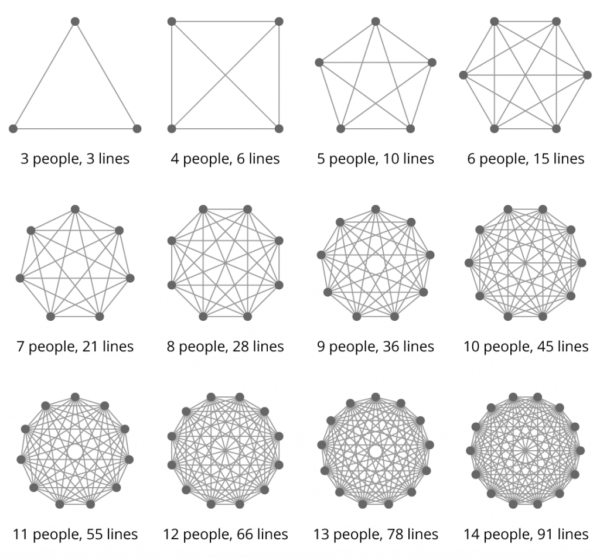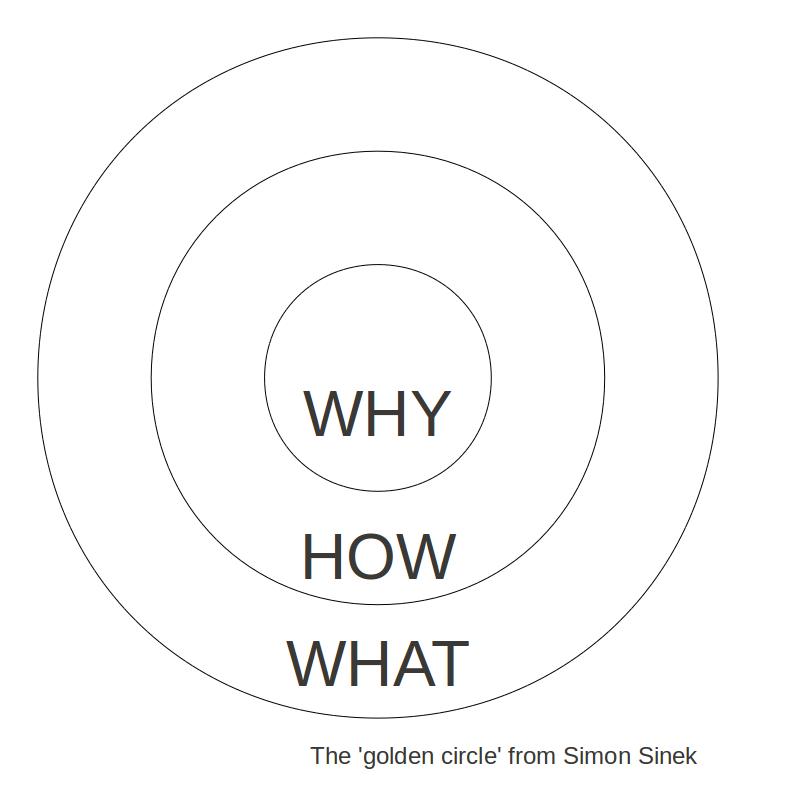Agency learnings: All the P’s
Any lack of updates is directly proportional to how busy life is at the moment. Everything is dialled up to 11, both at work and home.
🇺🇦 Note: It feels incredibly futile and privileged to write about things as mundane as worklife when there’s a war going on, with millions of people in Ukraine being unfairly and violently displaced, and thousands of innocent people being killed for no reason but for the ego and agenda of some small, unstable shithead. Yet like others, this is more an attempt at normality when everything else feels abnormal.
It’s been a month in my new role, as Design Director at a small but growing agency. In my view the first 30 days in any new job are like a glass, your mind filling to the point of overspill with everything: New information, new people, new relationships and knowledge, getting used to new processes and dynamics (“Oh, I’m used to doing it like this”).
It’s all been challenging but interesting. As my mental glass fills up, my clarity has improved for what needs changing or adjusting, and where best to focus my efforts.
I’ve been trying to keep a running log of some of the learnings across agency life, and I keep circling around four P’s:
People, Processes, Purpose, Proposition
A 4P framework?? How very trite and consultant of me, but hey ho.
People
The people at an agency are its lifeblood, besides new business. Without people there are no services provided. Get the people right early on and you’re golden. But it’s so much easier said than done. Within the ‘people’ column there’s a whole range of inter-personal dynamics including culture, management, HR, recruitment and many more.
Yet culture remains the bedrock. In the last few weeks I’ve referenced Dan Pink’s ‘Autonomy, Master, Purpose’ more than a few times.
Since COVID and the Great Resignation™️ so many people are re-evaluating what they’re doing, why, and for whom. The purpose of an employer has become such an important factor that it’s a primary criterion for many job searchers. What does your company stand for, and why? Can you, reading this, succinctly summarise your company’s purpose, without it sounding ‘very trite and consultant’?
Similarly autonomy is always a hot topic. At my last place autonomy was a double-edged sword as there was potentially too much. Senior staff were prone to plateau-ing when instead they needed direction. In my current digs it’s the other way; perhaps a little too tight. Too little autonomy can stifle great work. It’s a fine and precarious balance and it’s not easy to get right.
Processes
You know that feeling when you enter someone else’s house and it just smells different? They put their shoes in different places, and their coat hooks are in another room?
Processes between agencies are like that. They might amount to the same thing, but done in completely different ways.
Processes are also scale-dependent. At smaller company sizes processes are implied and innate. Things get done because the team is small enough to act and react as one. But past a certain size (typically 25) things start to break.

As a company grows in size the reliance on processes grows with it. Who does what? Where can you find certain information? With time, rapidly-growing organisations tart to show stress fractures. Processes and knowledge that might have been implicit or shared become difficult to find. As new people join, how are processes and knowledge shared?
If a company grows but the processes don’t, efficiencies are lost and the wheel will always get reinvented. Operationalising processes might feel ‘corporate’ but it’s the best way to share how things are done, while setting a foundation for how things should operate in the near-future.
One thing that’s becoming more commonplace is a company handbook. There’s one in the works at my current role and its already excellent. Packed to the rafters with all the info a new employee might need, with everything ranging from Slack etiquette to HR policies and line management best practices.
Purpose
This is all becoming very consultant if I reference Sinek’s ‘Start with Why’. Yet when talking about purpose it’s hard not to. The ‘why’ of any company is becoming more integral than it ever has been. Future staff want to stick their stake in the ground at a company that shares their values and purpose. It’s no surprise that a Google search for ‘purpose-driven agency’ yields a paltry 203m results. 
Sustainability, environment and ethics are increasingly important core tenets in both business and human resources. Staff and clients want to know they’re working at or with companies who give a shit about what they’re doing. Gone are the days that agencies could attract people with nice client rosters and then burn them out, with little else to offer except money and exposure.
What about changing a purpose over time? An agency might not have a clear purpose from the outset, but it’s there somewhere. In chipping away at what the collective group stands for — what makes them tick and what makes them wince — it becomes clear how to refine and uncover a strong purpose that reflects the organisation and its raison d’être.
Proposition
That thing that you exchange for money: How does it differ from others? Can you defend it with conviction? How do you stand out, and why?
In today’s agency landscape it is so easy to fall victim to ‘keeping up with the Joneses’. A colleague one time described agency websites today as a ‘sea of sameness’ with every agency looking identical and saying the same thing. Worse are the agencies who try to remain relevant to prospective clients by throwing a bunch of buzzwords into a hopper and seeing what sticks (synergistic innovations for web3 blockchain that maximise revenue and leverage stakeholder engagement), seeing what entices them like an anglerfish fishing for its prey.
A strong propositional statement has to be real, and it has to feel like a gauntlet has been thrown down. It says to everyone ‘this is what we do, and this is why we do it’. The right proposition aligns with the right client, telling them you’re the right choice, and it tells them what you don’t do. If you offer all the things, what are you a master of?
March 22nd, 2022